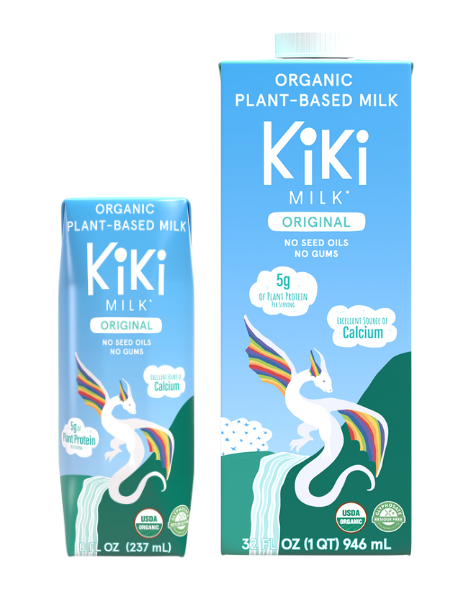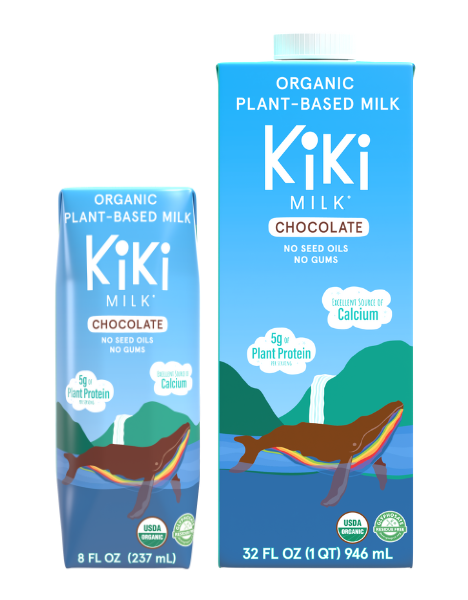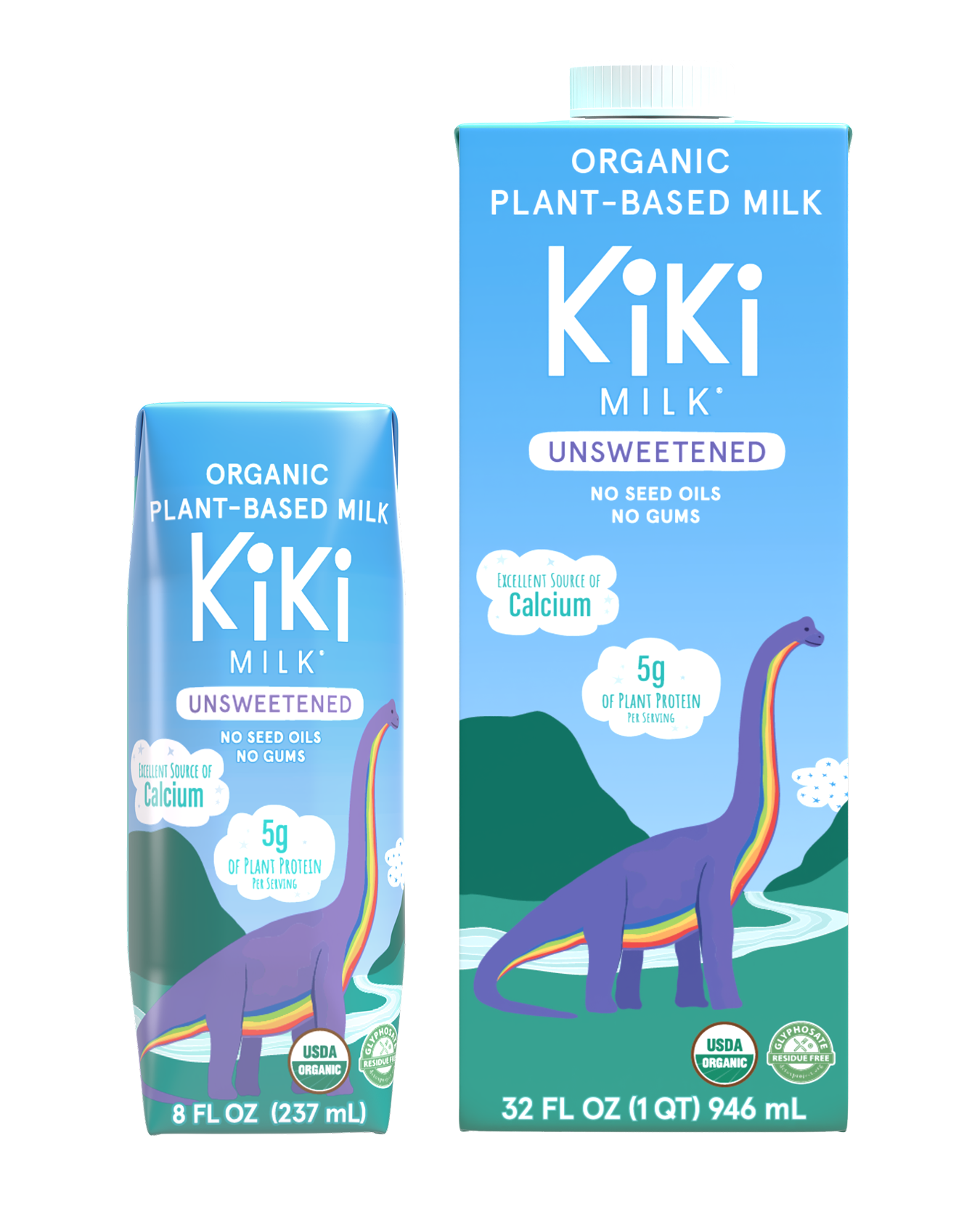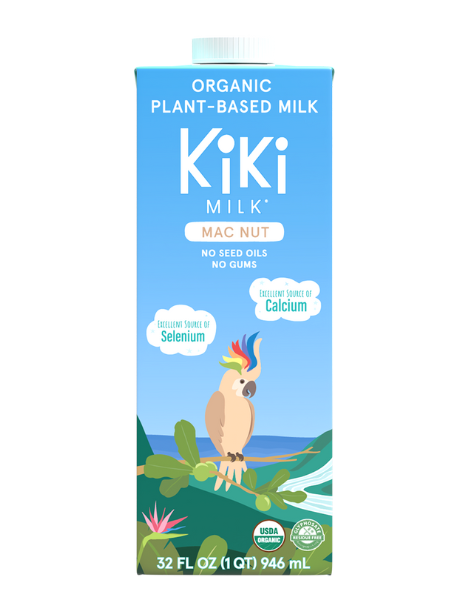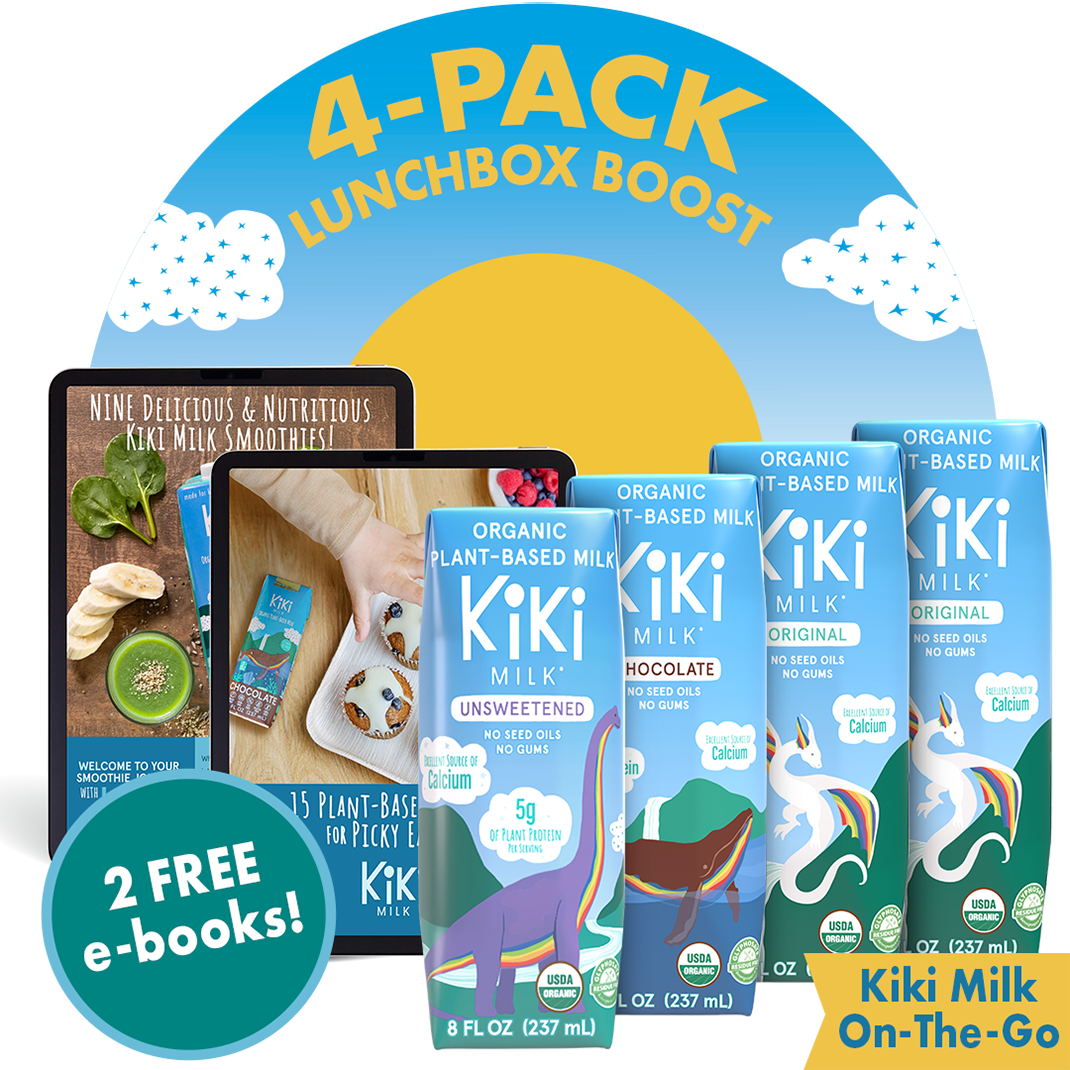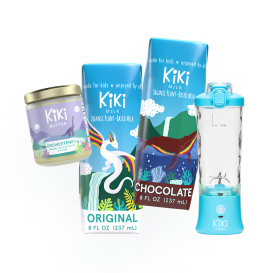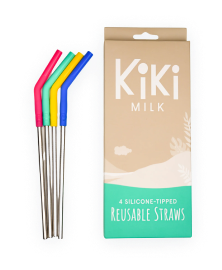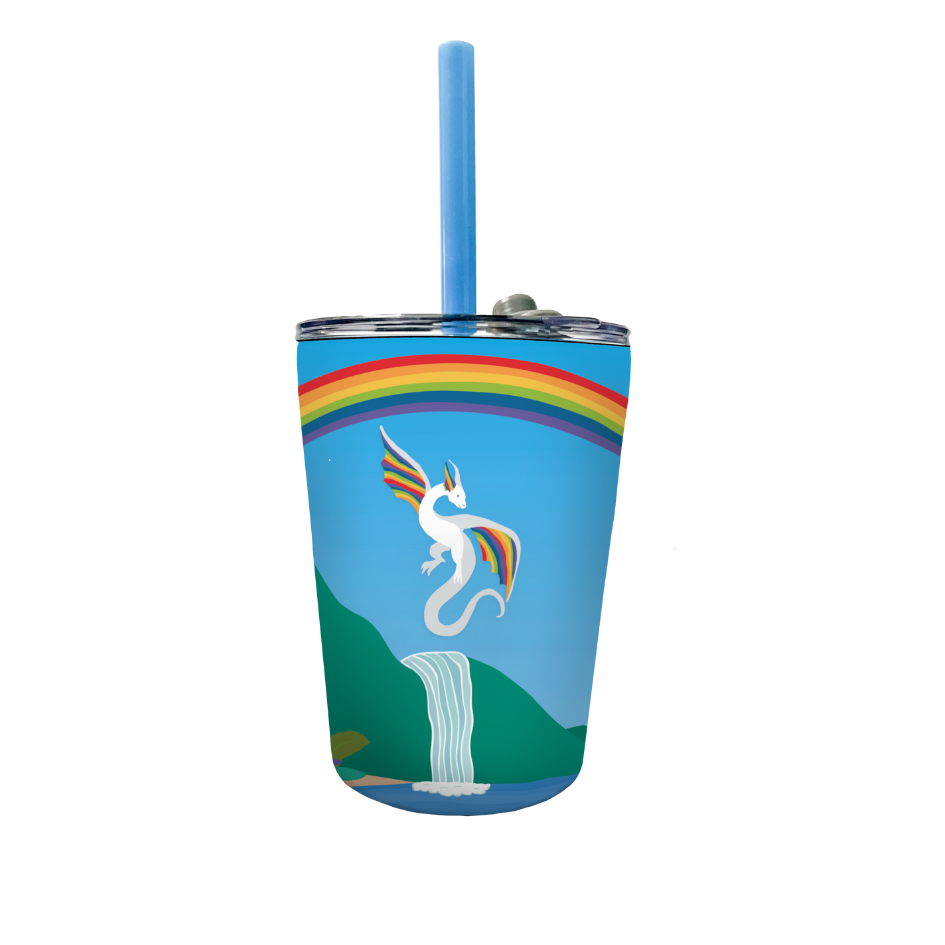This article is written by PlantBaby's Board Certified Pediatrician, Dr. Joel Gator Warsh
When I grew up, the only thing you could expect to drown your cereal in was cow’s milk, and it was not uncommon to drink a tall glass of milk each day. Parents repeated the slogan, “Milk, it does a body good,” thinking they were doing all they could to give their family strong bones. I vividly remember the milk mustache commercials. Do you?
Now, cow’s milk comes in all sorts of varieties: whole milk, two percent, one percent, skim (fat-free), and even lactose-free milk.
Pediatricians used to emphasize milk for young and growing bones at general wellness appointments. But that trend has changed. Many doctors are no longer emphasizing cow's milk as a necessity for calcium intake.
For people with dietary or allergy concerns, as well as those that do not want to drink cow’s milk, there are many alternatives to cow’s milk. Goat, Sheep, Camel, almond, soy, rice, pea, oat, hemp, and coconut “milk” are popular milk alternatives.
Each type of milk has its advantages and disadvantages, depending on a person’s diet, health, nutritional needs, environmental concern levels, or personal taste preferences. Below is a summarized breakdown of some popular milk and milk alternatives.
🐮 🥛 Whole Dairy Milk or Two Percent Dairy Milk
- Nutrition Facts at a glance: 150 Cals, 8g of Fat, 12g Carbs, 8g Protein, 11g Sugar, 30% Calcium
- Pros:
- Can provide essential proteins, extra calories from fats, as well as vitamins and minerals which is great for growing kids
- Lactose-free milk versions are available for people who have a lactose intolerance
- Cow’s milk, including grass-fed and low heat pasteurized options, is widely available in grocery stores and convenience stores
- Generally inexpensive
- Cons:
- 30 to 50 million Americans can't properly digest lactose, a sugar found in milk
- Many people are sensitive to dairy products
- Dairy farms are a major contributor to the total GHG emissions
🌱 🥛 Soy Milk
- Nutrition Facts at a glance: 100 Cals, 4g of Fat, 8g Carbs, 7g Protein, 6g Sugar, 30% Calcium
- Pros:
- Naturally lactose-free milk
- More accessible than other milk alternatives
- Good source of plant-based protein and calcium for kids
- Packed with B vitamins, iron, and fiber
- Cons:
- Soy is a common allergen for both adults and children
- Soybeans are often genetically modified (GMO); GMO soy may contain fewer nutrients and more herbicide residues than conventional or organic soy
- Soy milk is often known to have added sugar so double check labels
🍃 🥛 Almond Milk
- Nutrition Facts at a glance: 60 Cals, 1.5g of Fat, 8g Carbs, 1g Protein, 7g Sugar, 35% Calcium
- Pros:
- Naturally lactose-free milk
- Good source of antioxidants like Vitamin E
- Cons:
- Not suitable for those with a nut-allergy
- Lower in calories and healthy fat which are essential for growing kiddos
- Almond milk requires more water to produce than soy or oat milk; A single glass requires 74 liters (130 pints of water) - more than a typical shower
🌾 🥛 Oat Milk
- Nutrition Facts at a glance: 120 Cals, 5g of Fat, 16g Carbs, 3g Protein, 7g Sugar, 25% Calcium
- Pros:
- Naturally lactose-free and nut-free milk
- High in plant-based iron, protein and fiber
- Of all of the plants turned into milk, oats generally use the least water
- Cons:
- Oats are often contaminated with glyphosate at levels considered unsafe, because farmers spray Roundup on the crop right before harvest (make sure to buy oat milk that is organic, or at least glyphosate-free)
- Oat are naturally sweet but often oat milk has added sugar so double check labels
🥥 🥛 Coconut Milk
- Nutrition Facts at a glance: 45 Cals, 4.8g of Fat, <1g Carbs, 0g Protein, 0g Sugar, 10% Calcium
- Pros:
- Naturally lactose-free milk
- A good source of calcium, vitamin D, B vitamins, and healthy MCTs, which may boost your HDL (good) cholesterol
- Typically safe if you have a nut allergy*
- Cons:
- Coconuts naturally contain more saturated fat than you’d get from other plant-based milks
*Coconuts are considered a tree-nut by the FDA
🌿 🥛 Hemp Milk
- Nutrition Facts at a glance: 60 Cals, 5g of Fat, 0g Carbs, 3g Protein, 0g Sugar, 20% Calcium
- Pros:
- Naturally lactose-free milk
- Contain protein and healthy omega-3 and omega-6 unsaturated fats
- Hemp seeds have several environmental benefits; they are effective for building soil health and require very few pesticides because of its hardy nature
- Great carb-free option
- Cons:
- Relatively more expensive than other alternatives
- Many store bought varieties have sugar added, so be sure to read the label
🌈 🥛 Why I love Kiki Milk
Personally, I have not drunk cow's milk in over a decade, and my son has never had a tall glass of dairy milk. We choose milk alternatives for our family. Sometimes we make our own nut-based milks at home, and other times we choose a plant/nut-based alternative.
My new favorite dairy-free milk is Kiki Milk.
Pros of Kiki Milk:
-
Great source of protein, fat, fiber, calcium, and iron.
-
Very clean milk alternative with no additives and preservatives.
-
Organic milk
-
Nut free* (they do use coconuts)
-
Low sugar
-
Great taste that my whole family loves!
-
Fun packaging
But don’t take my word for it - try it yourself and let your family be the judge.
When it comes down to purchasing milk for your family, no one knows your family better than you do! Whether you add cow’s milk or plant-based milk to your cart, the decision is up to you.
